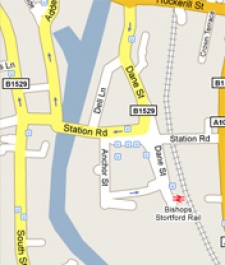We're going to hear a lot more chatter about location-based mobile games in the coming months.
GPS is an important element for iPhone and Android, which is spurring developers to make games using it. Meanwhile, Nokia has talked publicly of its desire to integrate its mapping services with its N-Gage gaming arm.
Technically, then, location-based gaming is possible, with strong encouragement from the handset and OS makers, who are keen to see games that show off the capabilities of their technology. So it's no surprise that developers are excited. The problem is that many will jump to the conclusion that location-based mobile games are about, well, people playing against each other in their real-world location.
That's been the historical approach, as seen in the often-cited BotFighters, a game released in 2000 that involved running round Swedish cities terminating other players. It was undeniably innovative, but it's spawned the belief in some quarters that GPS gaming has to involve playing against people near you.
All well and good if you're a 30-strong LBS development team nipping out to the park to play GPS-tag in your lunch hour. Not so good if you're just a regular consumer who doesn't live in a big, densely-populated city full of people with the latest handsets.
In short: what use is a location-based mobile game if there's nobody near you to play against? All too many of the cool GPS game ideas from developers fall down against this simple question.
That's not to say developers should ditch the idea. Where games involve real-time multiplayer, it's about thinking laterally.
If I'm in my hometown of Bishop's Stortford, how can my locality be virtually 'overlaid' onto other towns and cities around the world, creating a well-populated gameworld? A number of developers are investigating this.
A more simple approach is location-based online rankings: your phone knows you're in, say, Hertfordshire, and lets you compare your score to people in your area much like the Twinkle iPhone application enables you to see Twitter posts from your locality.
Thirdly, there are other ways to use location data than for real-time multiplayer.
This appears to be something Nokia is exploring for N-Gage, mooting the idea of turning the map data of your current location into a dynamically-generated game level, giving a completely different experience if you're up in the hills or in the middle of a city.
These three examples show how location can really add something to your mobile gaming. I can understand why the '30 mobile users virtually shooting each other in the urban jungle' model appeals to developers, but it can surely never be more than a niche geektoy.
Opinion: The problem with location-based mobile games
What if nobody else in my location is playing?





















